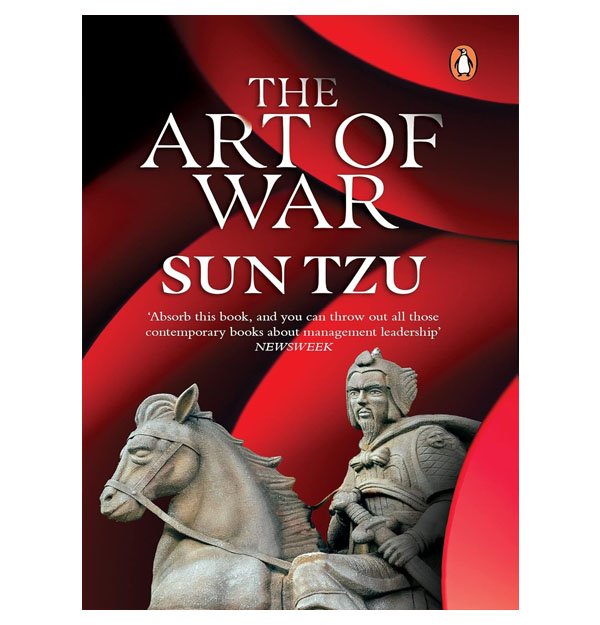No products in the cart.
The Art of War
The Art of War by Sun Tzu is an ancient Chinese military treatise that remains one of the most influential texts on strategy and leadership. Written over 2,500 years ago, this classic work is still studied for its insights into warfare, conflict resolution, and strategic thinking, applicable not just in military contexts but also in business, sports, and everyday life.
Key Principles and Strategy
At its core, The Art of War emphasizes the importance of strategy, preparation, and adaptability in achieving success. Sun Tzu’s teachings encourage leaders to understand both their own strengths and weaknesses, as well as those of their opponents. One of the most famous principles is, “If you know the enemy and know yourself, you need not fear the result of a hundred battles.” This stresses the importance of self-awareness and intelligence gathering in achieving victory.
Another key lesson from Sun Tzu is the value of flexibility. He argues that successful leaders and generals must be able to adapt their strategies based on changing circumstances. This concept is summarized by the famous line, “All warfare is based on deception.” Sun Tzu believed that victory often comes to those who can outthink and outmaneuver their opponents by using unconventional methods.
Application in Modern Times
Although The Art of War was originally intended for military leaders, its principles are widely applied in business, leadership, and competitive arenas today. Many executives and entrepreneurs draw from Sun Tzu’s tactics when navigating complex markets or overcoming competition. Concepts such as “choosing your battles,” understanding the environment, and taking calculated risks are just as relevant in a corporate boardroom as they are on a battlefield.
Sun Tzu also emphasizes the importance of leadership in achieving success. A leader must inspire loyalty and discipline in their followers while making calculated decisions for the greater good. Modern leadership strategies often mirror these principles, where CEOs and team leaders are encouraged to think strategically and motivate their teams effectively.
Conclusion
In conclusion, The Art of War remains a timeless guide on strategy, leadership, and conflict resolution. Its teachings continue to resonate across various fields, from military strategy to business and personal growth, offering valuable lessons in achieving victory through careful planning, adaptability, and insight.
Only logged in customers who have purchased this product may leave a review.
-
Bosch GSH 11 VC Professional Demolition Hammer
Original price was: ₹110,300.00.₹81,228.00Current price is: ₹81,228.00.Bosch GSH-11-VC-Professional Demolition Hammer
Original price was: ₹110,300.00.₹81,228.00Current price is: ₹81,228.00. -
Energy (DKfindout!)
₹450.00₹450.00 -
₹400.00
-
Pochampally sarees (Basu 01)
₹15,850.00₹15,850.00









Reviews
There are no reviews yet